Liz Truss has, if nothing else, been working on her delivery. Her first speech to conference as Prime Minister was only about seventy per cent as stilted as usual. She occasionally, though just occasionally, sounded like she was speaking to the audience rather than reading something off an autocue. She remembered to smile. She even had a go at pointing matily into the crowd when she was saying nice things about her ‘dynamic new chancellor’ or her ‘fantastic deputy prime minister’. And – which was the most she could have hoped for – she got through it without dropping any sort of clanger.
The speech itself, perhaps deliberately, was a hopelessly dull effort: a compendium of exhausted buzz-phrases chunked into groups of three or strung together with laborious anaphora. Not a single anecdote had the pulse of felt experience (except, perhaps, her unexpectedly woke complaint about being given a ‘junior air hostess’ badge when her brothers got ‘junior pilot’ badges); not a single phrase had the zip and originality that would have given her speech some life. Not once did she attempt anything resembling a joke.
We were told of ‘hopes and dreams’, ‘the value of hard work and enterprise’, ‘our way of life’, ‘unleashing potential’, ‘our great country’, how ‘proud’ she was of this, how ‘determined’ she was about that. We heard of ‘delivering’, ‘getting Britain moving’ (several times), the need to ‘level up’ and how ‘Britain is open for business’. She affirmed that she was against ‘political correctness’ and ‘red tape’ and in favour of ‘our children (having) a better future’.
She confirmed that we had ‘got Brexit done’. She even delivered a faded photostat of Tony Blair’s line about his three priorities – ‘education, education, education’ – by telling us that her three priorities were ‘growth, growth and growth’. The overall effect was the political equivalent of one of those apps that delivers hours of rain noises to help you get to sleep.
Indeed, the climate activists who disrupted the speech about a quarter of the way through did her an enormous favour. A large, genuine and spontaneous round of applause greeted their ejection from the hall – nothing unites an orator’s audience like a common enemy – and the necessity of improvising a response to the interruption injected a little spontaneity into her delivery. It will have helped focus those who found themselves, perhaps, getting a little drowsy what with all those rain noises.

It was a conference speech by numbers, then. My colleague Isabel Hardman, rightly, called it ‘workmanlike’. It opened with the immemorial flannel about the excellence of where the conference was being held. It did the ethos thing of talking about how the speaker’s life experience had shaped what she believed – ‘I fought to get where I am today…I know how it feels’. It had a bit about three quarters of the way through where she went on the attack against Labour. She harvested some easy applause from the general unanimity about Ukraine – ‘Ukraine can win, Ukraine must win, and Ukraine will win!’ – before an awkward segue into how the situation there showed us that ‘economic growth makes us strong at home and strong abroad’. She ended with a peroration – something about ‘a new Britain for a new era’ – that could have concluded any PM’s conference speech in the history of PMs’ conference speeches.
Cliché succeeded cliché. Dead metaphor lumbered after dead metaphor. Now we were going to ‘step up’; now we were making our way through a ‘tempest’; now we were seeking a ‘stronger footing’. And nobody has yet managed, evidently, to find an improvement on her cherished image of ‘growing the pie’, which is at best an awkward thing to visualise.
She clumped together an informal enemies list under the catch-all title of ‘anti-growth coalition’ – and, with wearisome predictability, made a jibe about how its members ‘taxi from north London townhouses to the BBC studio to peddle the status quo’. These affluent pundits are also ‘enemies of enterprise’ and ‘the hard left’. ‘They don’t understand the British people.’
Her strongest line, I think, which neatly acknowledged opposition while making the case for her programme, was her contention that ‘Not everyone is in favour of change, but everyone will benefit from the results’. Here was an argument of the winning shape that it doesn’t matter if you believe in God: God believes in you.
I’m not here to write about the politics of Truss’s speech, but every speech like this necessarily works within its political context. Talking about ‘vested interests dressed as think-tanks’, for instance, looked risky when media attention has been focused on the role of the IEA in her mini-budget and its opaque sources of funding. Some of her bromides seemed to contradict each-other, too. She didn’t seem to know between one sentence and the next whether the U-turn over the 45p tax cut was because it was the right thing to do but had become a ‘distraction’ thanks to the hysterical North London media and the hard-left hedge funds; or whether it was a mistake, for which she was humbly accepting correction (‘I get it, and I have listened’).
‘The Conservatives will always be the party of low taxes,’ she declared, not long after complaining that when she took over as PM, after more than a decade of Conservative government, we had ‘the highest tax burden our country has faced in 70 years’. She talked of how ‘we need to fund the furthest behind first’ while at the same time disdaining targeted redistributive policies: that growing pie will allow ‘everywhere everyone to get on’.
‘I believe in fiscal responsibility…I believe in sound money,’ she said – which would have landed better if she hadn’t just crashed the economy within a week or so of starting to do any actual politics. Denouncing those who imperil ‘our precious union, our family’ would sit better if she wasn’t the one trying to play hardball over the Northern Ireland Protocol. And so on.
But perhaps that’s nitpicking. Will it buy her some time? Who knows? It is noticeable that she had clearly decided in advance on a form of address. Not ‘conference’ or ‘colleagues’, but ‘my friends’. She said it eight times to an audience, many of whose members have spent the last few days anonymously briefing or openly rebelling against her. With friends like these, to use a cliché of my own, who needs enemies?
Got something to add? Join the discussion and comment below.
Get 10 issues for just $10
Subscribe to The Spectator Australia today for the next 10 magazine issues, plus full online access, for just $10.


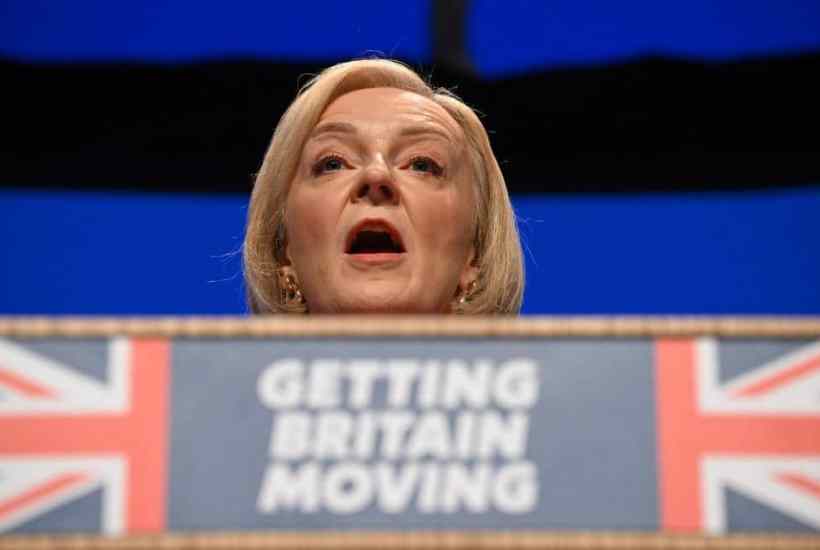
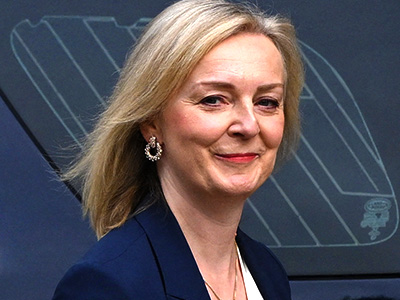
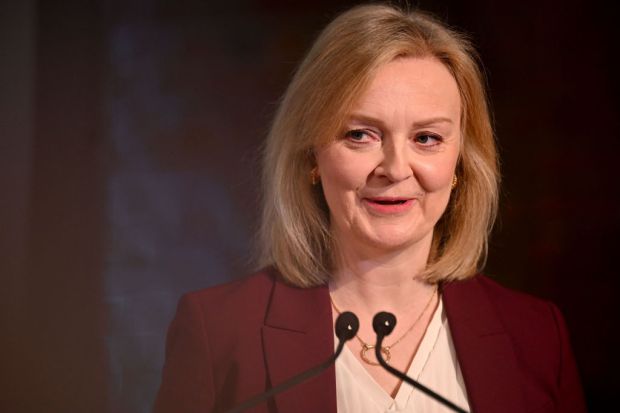
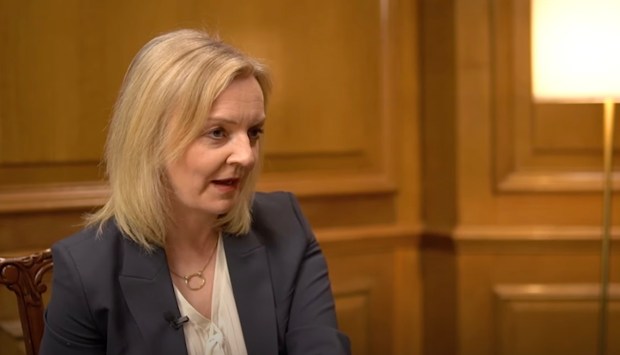
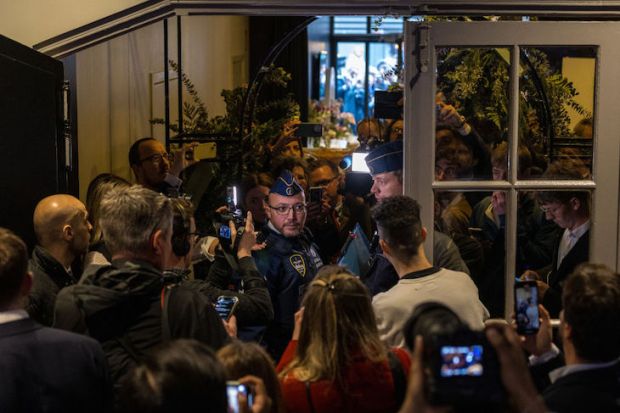
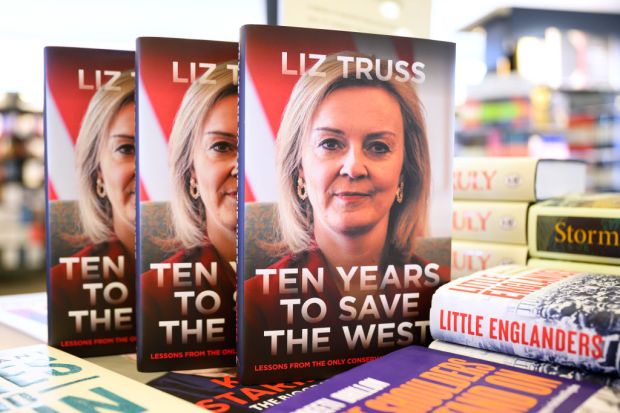
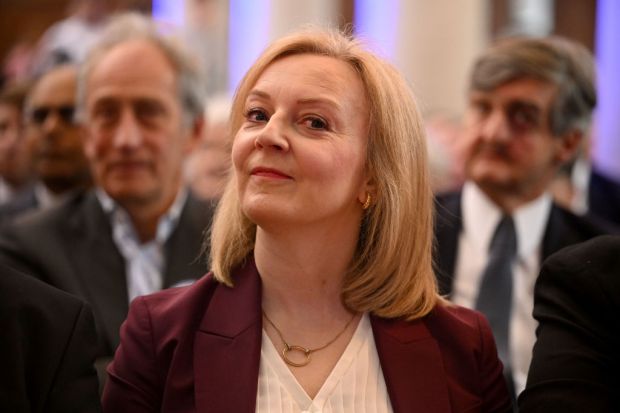












Comments
Don't miss out
Join the conversation with other Spectator Australia readers. Subscribe to leave a comment.
SUBSCRIBEAlready a subscriber? Log in